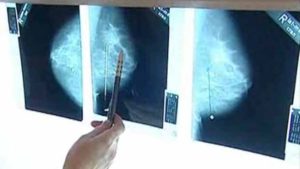 We all know that microbes (fungi, viruses, bacteria) live throughout our bodies - this is the human microbiome or microbiota. What is really interesting is that cancer tumors also have microbiomes (tumor microbiome), and these microbial communities are different than that found in healthy people (without tumors).
We all know that microbes (fungi, viruses, bacteria) live throughout our bodies - this is the human microbiome or microbiota. What is really interesting is that cancer tumors also have microbiomes (tumor microbiome), and these microbial communities are different than that found in healthy people (without tumors).
For a while it has been known that tumors (e.g., breast cancers) have different bacterial species than healthy tissue - the microbiome is different. Several recent studies find that tumors can also contain fungi, and cancers with certain fungal species have worse outcomes than those without the fungi. The mycobiome is the community of fungi that live in or on humans.
Also, the combination of fungal species are different depending on what kind of cancer that a person has. A group of scientists have put together a list (mycobiome atlas) of the distinctive fungi that are found with 35 different cancer tumors. This is exciting because in the future cancers could potentially be found by the microbial (fungi and bacteria) DNA they shed in the blood.
However, no one knows really why the fungi are in the tumors. For example, are they aiding the cancer development? Or is the cancer allowing the fungi to grow? Are the fungi interacting with the immune system? Or??
Several recent articles discuss this exciting new research.
From NY Times: A New Approach to Spotting Tumors: Look for Their Microbes
Look up an image of a tumor on Google, and you’ll probably end up with a brightly colored cluster of cancer cells on a drab background of healthy tissue. But for Lian Narunsky Haziza, a cancer biologist at the Weizmann Institute of Science in Israel, the picture looks very different. A tumor may also contain millions of microbes, representing dozens of species.
Scientists have long known that our bodies are home to microbes, but have tended to treat tumors as if they were sterile. In recent years, however, researchers have laid that notion to rest, demonstrating that tumors are rife with microbes. ...continue reading "Studies Find Fungi In Cancer Tumors"
